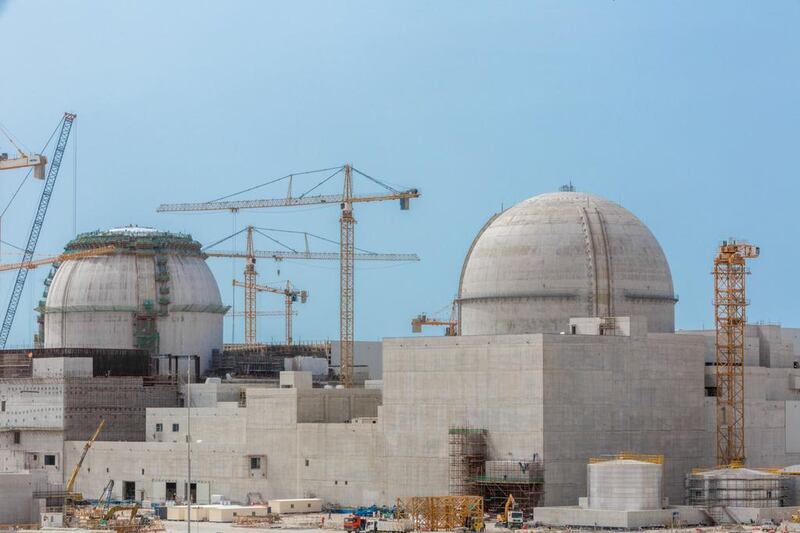ABU DHABI // The UAE’s first nuclear power plant could begin operating by May after the industry’s regulator on Sunday approved licences to transport and store nuclear fuel – a final step in a long, careful process.
The Federal Authority for Nuclear Regulation said the fuel’s first shipment would be sent from South Korea in coming weeks before being taken to the power plant’s Barakah site in the Western Region next month.
The authority’s approval is considered to be the last step before the first nuclear reactor becomes operational in May, pending regulatory approval.
Christer Viktorsson, Fanr’s director general, said it was a “major milestone for us because we’ve worked diligently during months to make us convinced that everything is ready to transport and store fuel”.
“One of the principles of the UAE’s nuclear power programme is operational transparency,” Mr Viktorsson said. “This is an effort by Fanr to keep the public informed about the important decisions it is making.”
The first shipment will be sent by sea and inspected on arrival in a couple of weeks, before it is moved to the reactor’s storage.
“They are packing the fuel now in Korea and we had inspectors there a few weeks ago,” said Ian Grant, the authority’s deputy director general for operations.
Mr Grant said the plant’s operator, the Emirates Nuclear Energy Corporation, already had power in the plant and was running systems at the plant to check its equipment.
“Once we have authorisation to load the fuel, there would be a period of about another six or seven months of testing and gradually increasing power,” he said.
Unit 1 of the plant will initially operate on low power as part the trial, going through phases of shutting down and increasing its power gradually until it reaches full power, also known as commercial operation, which will then feed power to the grid.
“The current schedule is May but we’re not bound by that schedule,” said Mr Grant. “We expect further inspections from the International Atomic Energy Agency, which will make sure the fuel is used for peaceful purposes only.”
Hamad Alkaabi, UAE ambassador to the IAEA, agreed that receiving fuel was a significant milestone.
“The UAE has worked closely with the IAEA safeguards teams to ensure all surveillance and control measures are in place and in line with IAEA requirements at the Barakah nuclear plant,” Mr Alkaabi said.
“This step demonstrates that all arrangements and measures in terms of readiness, safety and security have been received and confirmed to be adequate.”
More than 200 experts work in Fanr in nuclear safety, security, radiation protection, safeguards and related areas such as emergency preparedness and waste management.
The plant is designed on Korea’s model, which is set to withstand major natural disasters.
“The Korean Peninsula has got stronger earthquakes than here so the Korean design is very robust against earthquakes,” Mr Grant said. “It is designed to withstand twice the might that is predicted to happen at the site and we’ve studied the earthquake design extensively.”
Mr Viktorsson said the public seemed to be in favour of the nuclear power plant.
“When we’re out talking to the public in forums, the support for nuclear power in this country is much higher than what I am used to,” he said.
“So it seems there is confidence in the leadership that this energy source is safe, secure and peaceful. That’s why so much responsibility is on us because we have to ensure all this and take the time it needs.”
cmalek@thenational.ae






